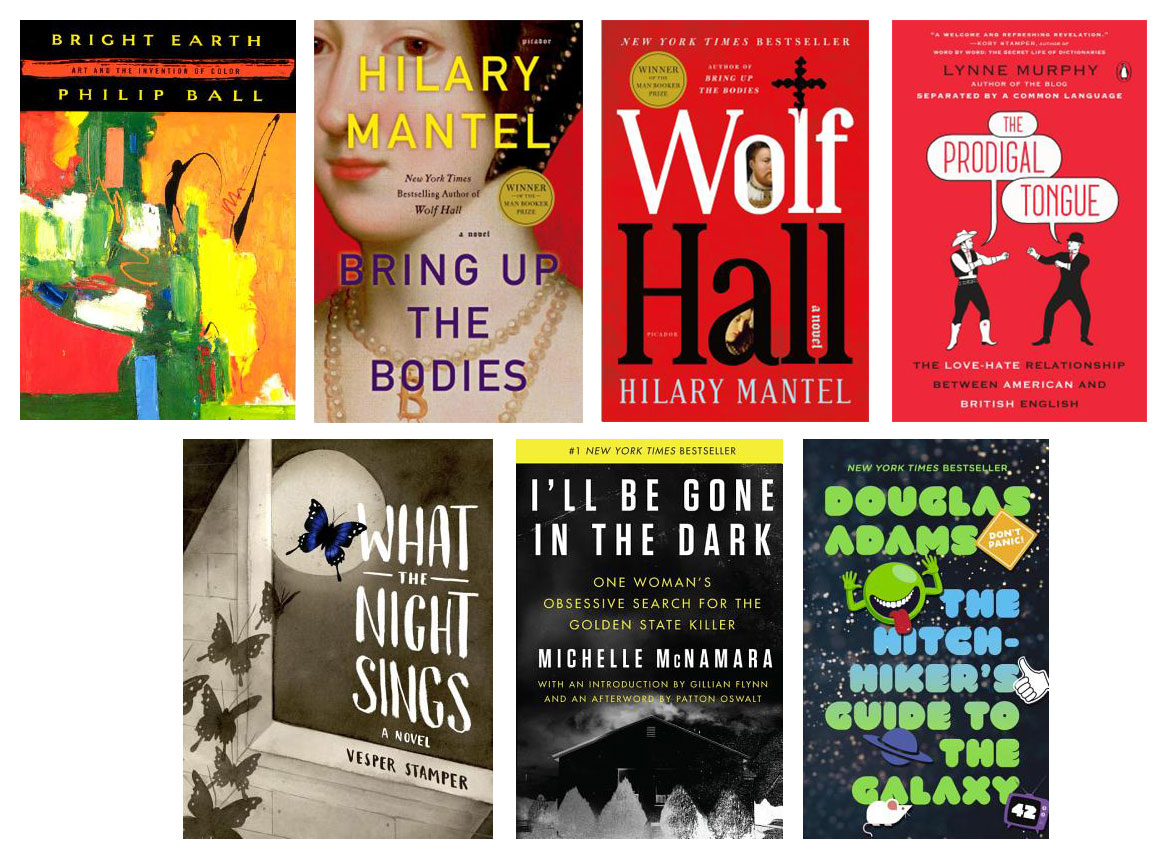Whatcha Reading, Kory Stamper?
Every week we ask an interesting figure what they're digging into. Have ideas who we should reach out to? Let it fly: info@seattlereviewofbooks.com. Want to read more? Check out the archives.
Kory Stamper is a lexographer, who worked for the Merriam-Webster family of dictionaries for twenty years. Her first book, Word by Word: The Secret Life of Dictionaries is just out in paperback. Town Hall is bringing her to Seattle this Sunday, March 25, at the Campion Ballroom on the Seattle Univeristy campus.

What are you reading now?
I usually have a couple of books running at once, because that's just the sort of nerd I am. My major reading is work-related: right now it's Bright Earth by Philip Ball. I'm working on another nonfiction book about color, and Ball's book is a readable and engaging book on the complexities of color by a different kind of specialist. To clear out the brainpan before bed so I can actually sleep and not bolt awake at 3:00am thinking about the color orange, I re-read a few pages of either Wolf Hall or Bring Up The Bodies by Hilary Mantel. When I first got the books, I devoured them — I think I read Bring Up The Bodies in one sitting. The characters are familiar but painted in such sympathetic detail, and the writing has such a lovely texture and rhythm and playfulness to it. I re-read books like that before bed because they usually draw me in enough that I'm not trying to fall asleep while thinking about prisms and what "magenta" really means.
What did you read last?
This is going to be the nerdiest answer you've likely ever received. For work, I read a series of monographs on colorimetry (the science of measuring the visible color spectrum) by Deane B. Judd, mostly written in the 1950s and 1960s. Even though I'm no kind of scientist, there were some fascinating tidbits in there about these amazing advances science had made in the accurate wavelength measurement of color juxtaposed with the reality that, in some cases, nothing beats the human eye for perception. It makes a non-scientist like me realize just how much of the human is involved in something I assume is wholly clinical, technical.
I also just finished reading Lynne Murphy's The Prodigal Tongue, a book about the differences between British and American English. The way she delves into it is so refreshing and is generally free of the sort of finger-wagging language shaming or chest-thumping defensiveness you see from both nations when the subject comes up.
What are you reading next?
I have spent — no joke — days trying to figure this out. Most people have a "to read" pile at home; I have a "to read" bookshelf and about six pages of "to read" suggestions, most of them marked with a star or exclamation point to remind myself that I really want to read this.
First up will be the new YA novel by my sister-in-law, Vesper Stamper: What The Night Sings. It's a gorgeously illustrated story about Holocaust survivors after the war, and I've been waiting for the right time to binge-read it. Another book I have recently added to that list is Michelle McNamara's I'll Be Gone In The Dark; the double-obsession narrative really intrigues me. I've also got some journal articles about gender and science on my work-to-read list. And I will probably cycle out the Mantel books as bedtime reading and cycle in Douglas Adams' Hitchhiker's Guide to the Galaxy. Everything's better when it ends with some Douglas Adams.